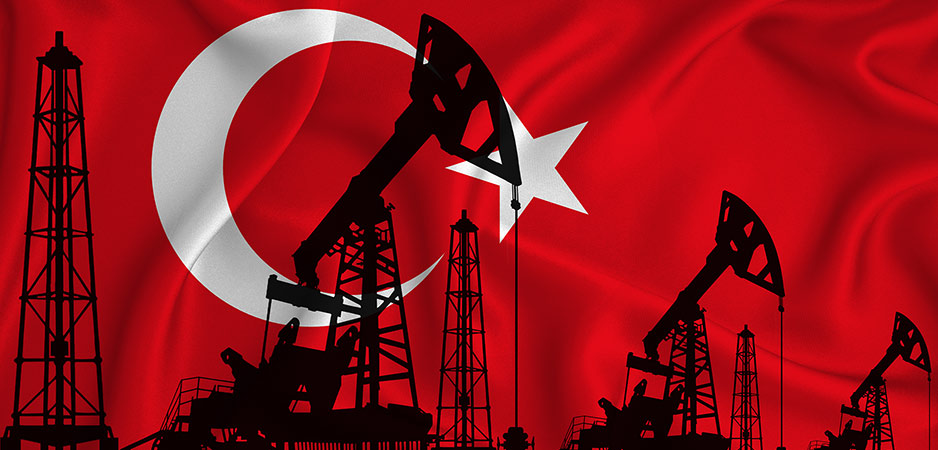In recent months, the United Arab Emirates has adopted a number of stances inimical to Turkish ambitions in the Mediterranean. This has taken the form of closer relations between the UAE, Greece and Greek Cyprus, more joint military exercises, and increased energy collaboration with Israel via the Abraham Accords. But with President Joe Biden in the Oval Office, the UAE has toned down its overt military posturing and complemented its strategy with economic means. The shift relies on hydrocarbon pipeline proposals that exclude Turkey with the aim to diminish its geopolitical importance to Europe.
Discovery of Natural Gas Exposes Turkey’s Political Rifts
The UAE views Turkey as a threat for two reasons. First, Ankara supports the Muslim Brotherhood, which the Emiratis have designated as a terrorist organization. Second, Turkey has been active both militarily and economically in North Africa, Syria and the Horn of Africa. In 2019 and 2020, competition between Abu Dhabi and Ankara flared, with both powers directly funneling mercenaries and money to Libya, stepping up competition in Somalia and castigating each other in diplomatic statements. The UAE also aligned with Greek Cyprus, Greece, France and Egypt against Turkey while providing financial and possibly military support in the form of mercenaries to anti-Turkish actors in the region.
Energy Games
During Biden’s first months in office, however, the UAE has undertaken two major actions that indicate a softer approach toward Ankara. First, on January 29, Abu Dhabi declared that it was ready to work closely with the UN on Libya. Second, the UAE began dismantling its base in Assab, in Eritrea. Although this move comes largely in an attempt to extricate itself from the war in Yemen, it also means losing a critical power-projection site that has acted as a counterbalance to Turkey’s and Qatar’s presence in Suakin, in Sudan. This does not mean that Abu Dhabi considers Turkey to be any less of a threat. On the contrary, recent UAE actions portend a refocusing on investment in pipelines and infrastructure in the eastern Mediterranean to blunt Ankara’s energy ambitions, especially concerning Turkey’s role in Europe’s energy security.
Moscow’s influence on Europe’s energy markets has emerged as a concern for the European Union and the US, with Russian supplies accounting for 40% of European gas consumption. Turkey is commonly floated as a solution because it can connect alternative pipelines from the Caspian and Central Asia. Turkey becoming an important energy transportation hub would give it leverage over the EU and allow it to better play the US, Western Europe and Russia against each other.
However, the UAE’s attempts to lock Turkey out of the eastern Mediterranean energy pipelines threaten Ankara’s goals of becoming a larger player in the EU’s energy market. The UAE is attempting to do this by joining the Eastern Mediterranean Gas Forum (EMGF) — comprised of Cyprus, Egypt, Greece, Israel, Jordan and Palestine — as an observer. Although the EMGF claims to be open to anyone, its ostensible purpose is to lock Turkey out of the Mediterranean hydrocarbons market, especially with the EastMed pipeline project. This pipeline would transfer gas from Cyprus and Israel to Greece and then further on to Europe; it is a major reason for Turkey’s involvement in Libya. The EastMed faces certain financial and political struggles, and the UAE’s endorsement of the project could galvanize initiative and create a breakthrough in rallying a coalition to circumvent Turkey on the energy market.
Moreover, Abu Dhabi’s improving relations with Israel provide it more alternatives in convening an anti-Turkish coalition. The Abraham Accords also augment the UAE’s ability to constrain Turkey by allowing Abu Dhabi to collaborate with Israel on joint pipeline projects. If the UAE manages to connect itself to the EastMed, or any other, pipeline, Turkey’s status as an energy alternative to Russia would diminish in the eyes of Europe and the US. It appears as if the UAE has already taken initiative in this regard: On October 22, 2020, Israeli state-owned Europe Asia Pipeline Company signed a binding memorandum of understanding with MED-RED Land Bridge, a company that has both Israeli and Emirati owners, to transport oil from the UAE to Europe.
The joint venture would rely on the Eilat-Asheklon pipeline, built by Israel and Iran in the 1960s, that would send Emirati hydrocarbons from Eilat, on Israel’s Red Sea coast, to Ashkelon, on the Mediterranean. Though this is an oil pipeline, this portends future initiatives that could see Emirati gas transported through Israel to Greece, via a connection to the EastMed. Furthermore, Emirati oil tankers disembarking in Eilat would come with an increased security presence in the area. Though not a military base, the venture could make up for the power projection loss from the now defunct base at Assab.
Economic Foothold
An Emirati bid to manage an Israeli port at Haifa represents another Emirati attempt to cement an economic foothold in the eastern Mediterranean. The port at Haifa is also close in proximity to Lebanon and Israel’s disputed oil blocs, some of whose drilling licenses have been awarded to France’s Total. As noted by Amos Hochstein, the former coordinator for international energy affairs at the US State Department, the UAE could adopt a larger role in resolving this dispute, which would free up more gas reserves that could be exported around Turkey. UAE mediation would also draw it economically closer to France, which has, for the most part, confronted Turkey in the eastern Mediterranean. If Total receives new oil blocs, a French economic dimension could also align against Turkey in the region, bolstering the UAE’s initiatives.
The Emirati bid for Haifa’s port comes after DP World, Abu Dhabi’s shipping and operations company, completed the Port of Limassol in Cyprus in 2018. Both actions represent the UAE’s push to bolster its infrastructure in the region, which would complement future pipeline initiatives. The UAE then signed a military cooperation agreement with Cyprus on January 12, which signified a deepening of this relationship. It followed an Emirati-Greek military partnership and a trilateral meeting between the UAE, Greece and Greek Cyprus, evidencing that Abu Dhabi is trying to complement military measures with diplomatic coalitions.
Cyprus proves critical to the UAE’s energy ambitions. Not only is the island a vital connecting point for the EastMed pipeline, but it also recently discovered gas, both of which provide Europe with an alternative to Turkey’s energy supply. This gas will flow to Cairo via a pipeline agreed upon in 2018, where it will be liquified and exported to Europe. These pipelines may not decisively change Turkey’s role in Europe’s energy security, but they nevertheless threaten Ankara’s energy ambitions and indicate that the UAE is undertaking a multifaceted strategy to undermine its rival.
Though both Turkey and the UAE would prefer to see each other’s geopolitical significance diminished in the eyes of Western Europe and the US, it would be best for Europe if the two actors worked together. Europe would face a crisis if a jingoistic Russia cuts off the gas deliveries to the continent. Moscow has already threatened Ukraine’s energy supply. As many have argued, Emirati-Turkish competition erupted because of a power vacuum left by incremental US withdrawal from the region. However, if the US and other disinterested states could attempt to broker a détente following the lifting of the blockade on Qatar, collaboration between Ankara and Abu Dhabi could prove a viable supplement for Europe’s energy security.
*[Fair Observer is a media partner of Gulf State Analytics.]
The views expressed in this article are the author’s own and do not necessarily reflect Fair Observer’s editorial policy.
Support Fair Observer
We rely on your support for our independence, diversity and quality.
For more than 10 years, Fair Observer has been free, fair and independent. No billionaire owns us, no advertisers control us. We are a reader-supported nonprofit. Unlike many other publications, we keep our content free for readers regardless of where they live or whether they can afford to pay. We have no paywalls and no ads.
In the post-truth era of fake news, echo chambers and filter bubbles, we publish a plurality of perspectives from around the world. Anyone can publish with us, but everyone goes through a rigorous editorial process. So, you get fact-checked, well-reasoned content instead of noise.
We publish 2,500+ voices from 90+ countries. We also conduct education and training programs
on subjects ranging from digital media and journalism to writing and critical thinking. This
doesn’t come cheap. Servers, editors, trainers and web developers cost
money.
Please consider supporting us on a regular basis as a recurring donor or a
sustaining member.
Will you support FO’s journalism?
We rely on your support for our independence, diversity and quality.






